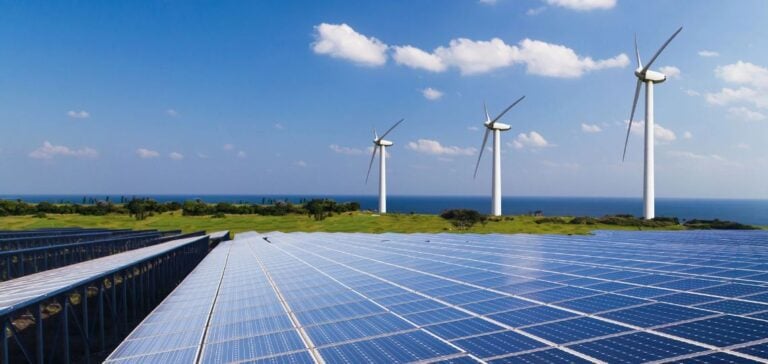The adoption of flow-based market coupling by Nordic countries represents a strategic step toward closer energy integration with the European Union. By choosing this model, already in use within the EU, Norway, Sweden, Denmark, and Finland demonstrate their commitment to playing a central role in the European electricity market. This decision comes in a context of securing energy resources and reducing dependence on fossil fuels, particularly from Russia, to strengthen Europe’s energy stability.
Alignment with European Standards
The flow-based market coupling model facilitates the interconnection of electricity networks and optimizes the use of cross-border transmission capacities. This mechanism allows for a finer management of electricity flows based on the real availability of networks and resources. For Nordic countries, adopting this model means a smoother and more aligned integration with the European market, facilitating the transmission of their wind and hydropower surpluses to high-demand areas, mainly in Sweden and Denmark.
This approach also enables a more efficient use of renewable energy, especially in Nordic regions that benefit from favorable climatic conditions for wind and hydropower production. By joining a harmonized system, Nordic countries reinforce network stability while reducing the need for new infrastructure, a critical factor in moderating costs during a period of energy inflation.
A Step Toward Energy Independence
In a complex geopolitical climate, marked by Europe’s desire to reduce reliance on fossil fuels, Nordic countries position themselves as strategic partners for Europe. Norway, a key player in natural gas supply, takes a clear stand in promoting renewables, strengthening its own energy security while contributing to that of Central and Western Europe. This model shift, aligned with the European Union’s strategy, also allows for better integration of intermittent sources such as wind and solar.
With flow-based market coupling, Nordic countries are better prepared to respond to peaks in European electricity demand, offering a sustainable alternative to fossil fuel imports and reducing risks associated with supply fluctuations.
Strengthening European Energy Security
Flow-based market coupling enhances the resilience of the European power market in times of crisis. With increased power transfer capacity between Nordic countries and the rest of Europe, network managers can respond more quickly to demand fluctuations or production interruptions. For example, in the event of a shortage or failure in a European country, interconnections with Nordic countries, rich in renewable resources, help maintain grid stability.
This ability to adjust energy flows in real-time positions Nordic countries as guarantors of European energy security. In the coming years, this strategy could also result in economies of scale for partner countries while mitigating the impacts of geopolitical crises.
New Opportunities for Cross-Border Cooperation
The adoption of this model also paves the way for increased cooperation in implementing cross-border projects, such as developing new interconnections and flexibility solutions, including energy storage. These initiatives include the creation of submarine connections between Nordic countries and southern EU regions, facilitating greater renewable energy flow. This approach aligns with the EU’s financing policy for green infrastructure and research to support renewable energies.
By integrating these European standards, Nordic countries also become priority candidates for European funding in green infrastructure and energy innovation. Among potential projects are offshore wind management initiatives, thereby enabling greater production and export capacity to continental Europe. This increased energy integration could help achieve the EU’s climate goals while ensuring a smooth transition to a carbon-neutral economy.
An Energy Transition Model for the Future
Flow-based market coupling, as adopted by Nordic countries, is an innovative model that could inspire other regions seeking to enhance energy security while further integrating renewables. By stabilizing renewable energy flows and minimizing price volatility, this model provides concrete solutions to current challenges in the European electricity market and offers a solid cooperation foundation for future decarbonization initiatives.
Nordic countries thus demonstrate that a strategy based on flow-based market coupling can combine sustainable development with economic competitiveness. By relying on this model, Europe progresses toward a unified electrical network, where resource coordination and interoperability are essential pillars for the continent’s energy future.






















